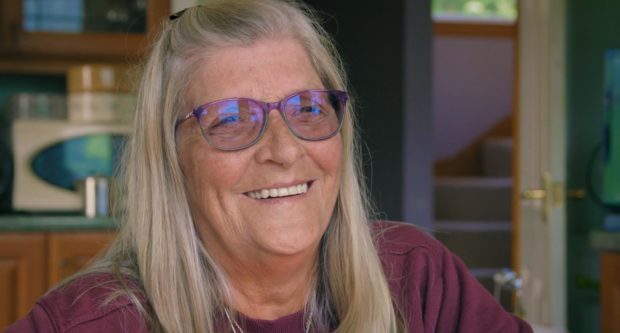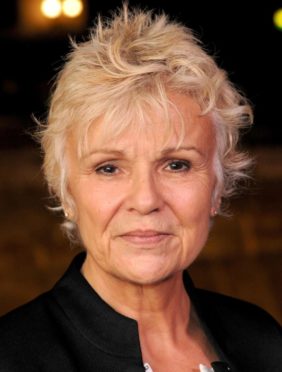A Perthshire woman living with dementia has urged the UK government to fulfil its election promise to double funding for research into the condition.
Olive Munro, from Ardtalnaig on Loch Tay, was diagnosed with vascular dementia in 2015.
The 70-year-old has been joined by Dame Julie Walters in urging the government to deliver on its promise of over £160 million a year into the research.
Nearly 50,000 people have backed the petition from Alzheimer’s Research UK, with other stars including Dame Judi Dench, Stephen Fry, Brian Cox, Luke Evans and Dame Harriet Walter adding their names.
Effects of dementia
Olive drew upon her own experiences of dementia to encourage others to also sign the petition.
“I’ve witnessed the heartbreak of dementia in my family as three aunts died with Alzheimer’s disease and a cousin is now living in a nursing home.
“Dementia reduced them to a fraction of themselves. So being diagnosed with dementia myself was very upsetting.
“I’m fortunate that I’m still currently able to live life to the full. I’m able to cope with my symptoms and they don’t impact me too much.
“I mostly have problems with mental arithmetic and occasionally forgetting words.
“I also have some memory problems, forgetting the little day-to-day things.”
She added: “But I don’t know what the future will hold. I don’t know how quickly things will get worse and there are currently no treatments to stop or slow dementia.
“That’s why I’m urging people to sign Alzheimer’s Research UK’s petition, calling on government to deliver on its election promise to double funding for dementia research.”
Impact of coronavirus
According to Alzheimer’s Research UK, 94% of dementia researchers are concerned progress is at risk due to fewer funding opportunities in the area.
The research foundation revealed around 59% of people believe the government’s pledge to increase funding for dementia research is now more important amid the coronavirus pandemic.
It says the pandemic has delayed studies into dementia and forced pioneering researchers to consider leaving the field.
It added one in four people in Scotland, England and Wales who died of Covid-19 also had dementia, while social distancing measures have been “particularly challenging” for people with the condition.
Chief Executive of Alzheimer’s Research UK Hilary Evans said: “While it’s right that the response to the pandemic has had to take priority, dementia is our greatest long-term health crisis and the lives of people affected by dementia are being torn apart by COVID-19.
“The search for life-changing dementia treatments has never been more critical.”
Dame Julie Walters
Dame Julie Walters has witnessed first-hand the impact dementia can have on a person. Her grandmother lived with Julie and her family while dealing with vascular dementia.
Dame Julie said: “As someone who witnessed the effects of dementia growing up, I am proud to be standing with the tens of thousands of people who are calling on government to deliver on its election promise to double investment into researching the condition.
“My grandmother had vascular dementia and she lived with us when we were kids. We didn’t really understand her symptoms, but we all loved her to bits.”
She added: “It’s appalling that over half of us know someone affected by dementia, yet there are no treatments to slow, stop or prevent it.”
Government response
In response to the calls, the UK government said it is working with the health sector to boost further research into dementia.
A Department for Health and Social Care spokesperson said: “We are committed to significantly increasing research funding to improve detection and care for people living with all kinds of dementia, including Alzheimer’s disease.
“As part of our 2020 Challenge on Dementia, the government has already spent £344 million on dementia research in the past five years.”

